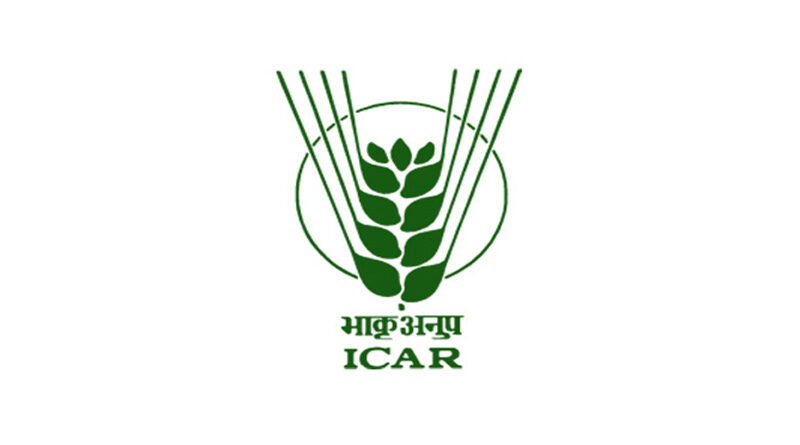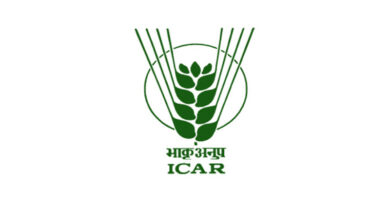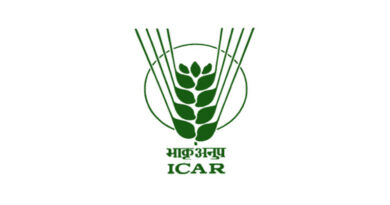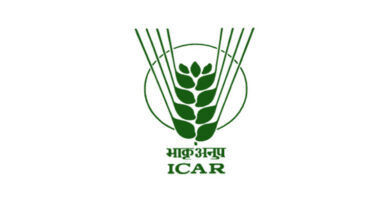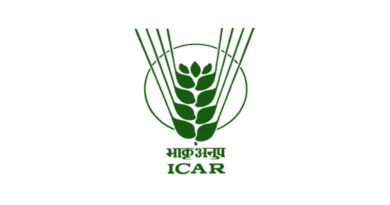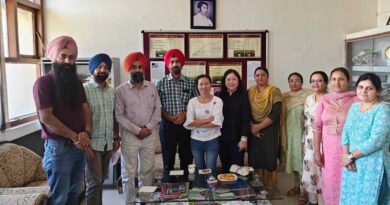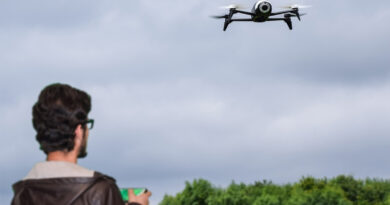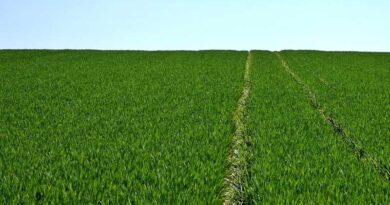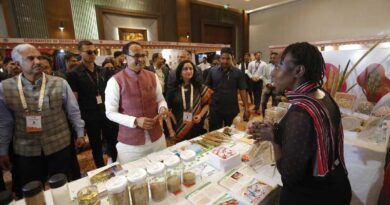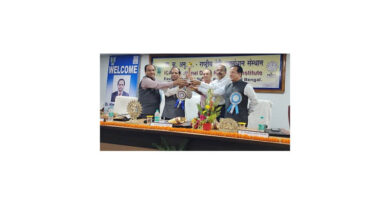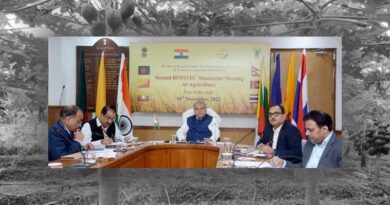ICAR-APAARI Knowledge Management Workshop organized
29 July 2022, New Delhi: The ICAR-APAARI Knowledge Management Workshop was organized at the NASC Complex, New Delhi today. The basic objective of the workshop was to take stock of situation in Knowledge Management and develop roadmap for future collaboration. Dr. Trilochan Mohapatra, Secretary (DARE) & DG (ICAR) and Dr. A.K. Singh, DDG (Agricultural Extension), ICAR were Chairman and Co-chairman of the workshop, respectively. DDGs, ADGs and Directors of ICAR research institutes attended the workshop.
In his inaugural address, Dr. Mohapatra highlighted that ICAR led NARES is the largest Agricultural Knowledge Generation System in the world. On the basis of strong knowledge base and its application, the country has experienced several revolutions in agriculture and we are amongst the leading agricultural producers. The question is how we can capitalize this knowledge and take lead in benefiting not only Indian Agriculture, but also other Asian countries. An implemental way forward is expected from this workshop. The recommendations of high level committee constituted for restructuring of DKMA are awaited and we shall be in a position to have a clear defined knowledge management strategy implementable through DKMA at national and international level.
Dr. Ravi Khetarpal, Executive Secretary, APAARI in his welcome address highlighted the association of APAARI with ICAR. He mentioned that rich knowledge available with ICAR is not only catering needs of the country but also of other Asian countries. APAARI looks towards ICAR for its support in developing knowledge management system to benefit other nations associated with the APAARI. He expressed his desire of collaborating with ICAR in more areas and wished this workshop will be a fruitful step in this direction.
In order to sensitize the discussion, Dr S K Malhotra, Project Director, DKMA made a presentation and gave a holistic view of the ICAR Knowledge Management System highlighting the complex network of Apps, platforms etc. He presented ICAR’s knowledge generation and diffusion system prevailing in agriculture through 113 institutes including ATARIs. He further mentioned that the ICAR institutes have contributed profusely through development and implementation of knowledge resource portals such as 15 digital resources, Krishikosh, Krishi e-Resource, e-pubs, DKMA publications, KIRAN, KVK Knowledge network and Kisan Sarthi. He emphasized for social engineering of new knowledge.
Dr. A.K. Singh, DDG (Extension) expressed his desire for the integration of the knowledge available at discreet locations at one single focal point. Dr Singh also outlined the fact that sharing forms the critical part whenever a knowledge base is created. He further said that there is no dearth of Knowledge available as ICAR houses the world’s largest knowledge repositories and but needs an efficient KM process for capitalizing on huge knowledge base available with us.
Dr. T.R. Sharma, DDG (Crop Science), ICAR highlighted that ICAR is fortunate to have Directorate of Knowledge Management in Agriculture dedicated to the dissemination and sharing of agricultural knowledge and information. He stressed that since we are dealing with information which is very diverse in nature, it necessitates its proper storage in a DBMS as it is dynamic in nature with smooth archival, retrieval and upgradation. This database management system should be fed from all nodes of the ICAR and should allow data analysis in a user friendly manner.
Dr. A.K. Singh, Director (IARI) brought to the fore the role of Intellectual Property Management in the KM process along with the need for commercialization of available technologies. Dr Singh also outlined the need to ponder on the ways on how to strengthen the Agricultural Research System.
Dr. Rajendra Prasad, Director (IASRI) apprised that IASRI is housing 13 digital repositories which are accessible worldwide and are also a part of the GARDIAN system of the CGIAR. Dr Prasad also conveyed that ICAR is having a video repository also capable of unified search. He also demanded that knowledge resources available with APAARI should be shared with ICAR and interpretability of the KM system.
Dr. J.P. Mishra, ADG (IR) enlightened the participants about the spread and scope of ICAR citing that ICAR is omnipresent with its footprints everywhere on the Indian landscape and celebrated its 94th Foundation day recently. He mentioned about the bouquet of activities ICAR is executing in KM sphere including portals, mobile apps, e-granth etc. He mentioned that we need to reflect upon the approach towards KM-Innovation process.
Dr. Tara Satyavati, Project Coordinator (AICRP on Pearl Millet) requested that it is the right time to start developing a common platform dedicated to International Year of Millets 2023 as a one-stop place for all the activities undertaken by ICAR in this direction.
This was followed by a presentation by Ms. Martina Spisiakova wherein she highlighted the role of Knowledge Management in Innovation and how KM is an integral part of Innovation. The presentations were followed a round of group discussion reflecting on the similarities/dissimilarities of the KM process of ICAR and APAARI.
The Session on Participatory Analysis of KM gaps of the ICAR was organized wherein the dignitaries identified both the structural as well as functional gaps in the present KM System of ICAR. After the brainstorming session, a deliberation on how to bridge these gaps was done to identify the strategies/action points that can help in bridging these gaps. It was concluded from the session that ICAR has strong knowledge base and is evident from several success stories. The member Asian countries of APAARI can largely benefitted by the rich experience of Indian National Agricultural Research and Education system.
The Workshop ended by a Vote of Thanks by DG (ICAR) and Executive Secretary, APAARI and Project Director (DKMA).
Also Read: Investment of Asean and Taiwan in India’s Food Processing Sector

